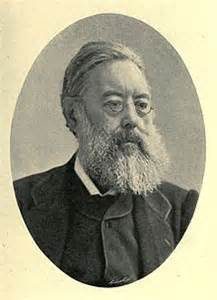[In his epistle] James implies that if we had it [wisdom] we should count it all joy when we fall into trouble. What a difference that would make to many of us! And even if we came short of rejoicing, and were only able to subdue our discontent and impatience, and to rise above the transient troubles of the eternal treasure which it cannot lessen, the eternal glory which it cannot dim, how great a thing it would be! This wisdom, if we had it, would transfigure life. You have an unreasonable employer, wisdom would teach you to regard his unreasonableness as a divinely appointed discipline to train you to good temper. A man has greatly wronged you; wisdom would teach you to reg ard the wrong as giving you the opportunity of fulfilling our Lord’s precept: “Bless them that curse you, pray for them that despitefully use you.” Your occupation is dreary, monotonous, badly paid; wisdom will teach you to do your work as unto the Lord and not unto men, and this will bring down into your work-room light from heaven. You lose money that you have worked hard for; wisdom will teach you that this loss will help you not to put your trust in uncertain riches. And so when a man once comes to see that human life is surrounded by infinite horizons, all things will be changed; conduct will have a new law, the heart will find new peace.
ard the wrong as giving you the opportunity of fulfilling our Lord’s precept: “Bless them that curse you, pray for them that despitefully use you.” Your occupation is dreary, monotonous, badly paid; wisdom will teach you to do your work as unto the Lord and not unto men, and this will bring down into your work-room light from heaven. You lose money that you have worked hard for; wisdom will teach you that this loss will help you not to put your trust in uncertain riches. And so when a man once comes to see that human life is surrounded by infinite horizons, all things will be changed; conduct will have a new law, the heart will find new peace.
Robert William Dale (1829-1895)
English Congregational clergyman and author, who was the first Englishman appointed to the Lyman Beecher Lectureship at Yale.
“The Gospel of Suffering”
Source: For All the Saints, year 1, volume 2, 206
Reference James 1:2-5
